Bali, known for its stunning landscapes and vibrant culture, has become a beacon for sustainable tourism, particularly in the realm of diving. As a destination that marries a rich cultural heritage with ecological awareness, Bali offers unique experiences from Bali diving courses to scuba diving certifications that highlight the significance of preserving its underwater treasures. The island’s approach to tourism is deeply intertwined with traditional practices, ensuring that visitors not only enjoy the thrill of exploring its breathtaking dive sites but also contribute to the well-being of its local communities and marine environments. This blog will explore how Bali’s cultural heritage shapes sustainable tourism practices, inviting you to dive into both its waters and its heart.
Exploring Bali’s Cultural Heritage and Its Impact on Tourism
Bali’s cultural heritage is a vibrant tapestry woven from its ancient traditions, artistic expressions, and spiritual practices. This island paradise, known for its stunning landscapes, is equally famous for its rich customs and festivals, which play a vital role in shaping the tourism industry. The preservation of Bali’s cultural identity not only attracts travelers seeking authentic experiences but also encourages local communities to engage in sustainable tourism practices. By highlighting unique aspects of Balinese culture, such as traditional ceremonies and craft techniques, Bali promotes a form of tourism that respects and celebrates its heritage, ensuring that each visitor leaves with a deeper understanding of the island’s legacy.
This cultural awareness translates into initiatives that aim to protect natural resources and foster environmental stewardship among both locals and tourists. For instance, Bali Dive Resorts often incorporate cultural elements into their offerings by providing Bali diving courses that educate divers not just on the techniques of scuba diving but also on the significance of marine conservation. This holistic approach, including the Open Water Diving Courses or Advanced Diving Courses, instills a sense of responsibility in divers while simultaneously showcasing the beauty and fragility of Bali’s underwater ecosystems. Thus, Bali’s cultural heritage significantly impacts sustainable tourism by encouraging practices that honor both the land and the sea, ensuring a harmonious coexistence of nature, culture, and responsible travel.
The Role of Scuba Diving in Bali’s Sustainable Tourism
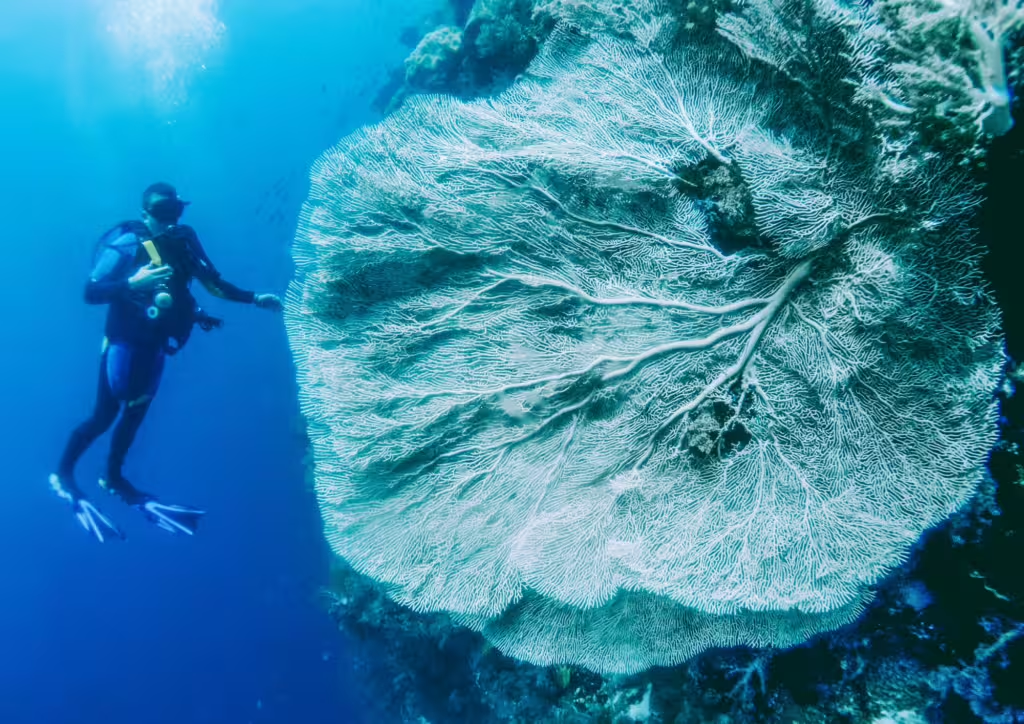
scuba diving has become a key component of Bali’s sustainable tourism approach, intertwining the island’s rich cultural heritage with ocean conservation. As a paradise for marine enthusiasts, Bali offers various diving courses, from basic diving lessons to comprehensive scuba diving certification programs. Dive resorts in the region not only focus on providing exceptional diving experiences but also emphasize educating tourists about local marine ecosystems and the importance of sustainable practices.
This educational angle fosters a deeper connection between visitors and the underwater world, enhancing awareness of the pressing environmental issues that threaten these vibrant ecosystems. Moreover, the growing trend of eco-conscious travelers participating in Bali’s diving courses complements the island’s commitment to preserving its natural resources. From Open Water Diving Courses to Advanced Diving Courses, diving schools actively promote environmentally friendly practices, such as reef monitoring and cleanup initiatives. By involving divers in these activities, Bali is paving the way for a new breed of tourists who appreciate the delicate balance between enjoyment and responsibility, ensuring that the region remains a sustainable haven for future generations of divers and ocean lovers alike.
Bali Diving Courses: Learning in Harmony with Nature
Bali is not just a tropical paradise known for its stunning landscapes and rich cultural heritage; it also offers an incredible opportunity for divers to learn in a sustainable environment. Bali diving courses are designed to not only teach essential skills but also to immerse students in the island’s unique marine ecosystem. Through these courses, participants gain their scuba diving certification while discovering the importance of preserving the delicate underwater habitats.
Diving lessons are often customized to include elements of environmental awareness, encouraging divers to become stewards of the ocean from the very beginning of their diving journey. Many Bali Dive Resorts have adopted eco-friendly practices, ensuring that the diving experience aligns with the principles of sustainability. From Open Water Diving Courses to Advanced Diving Courses, each program incorporates a deep understanding of local conservation efforts.
By learning about the intricacies of the marine environment, divers are equipped with the knowledge to minimize their impact while maximizing their enjoyment of the vibrant underwater world that Bali has to offer. In this way, each diving course becomes not only a lesson in scuba diving but also a gateway to a more sustainable interaction with the natural world.
Top Bali Dive Resorts Committed to Environmental Conservation
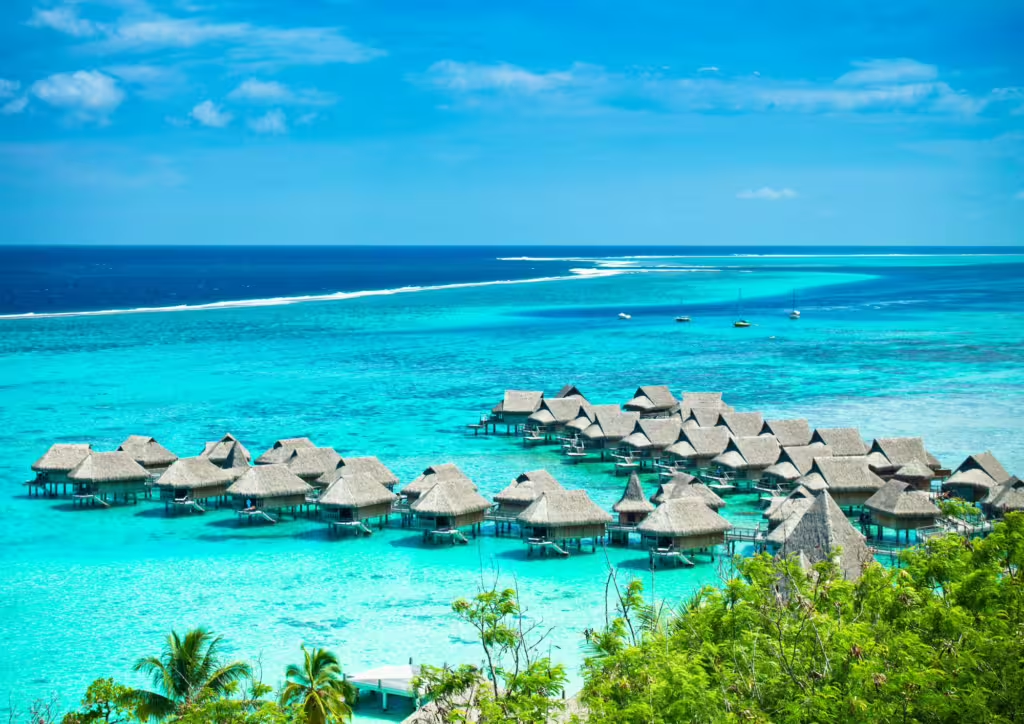
Bali is not only known for its stunning landscapes and vibrant culture but also for its commitment to environmental conservation, especially when it comes to diving. Top Bali Dive Resorts are at the forefront of sustainable tourism, providing diving courses that are both enriching and environmentally friendly. These resorts often offer comprehensive programs such as the Open Water Diving Courses and Advanced Diving Courses while ensuring that their practices support the local ecosystem.
By integrating conservation principles into their diving lessons, they educate divers about marine life, the importance of coral reefs, and how to leave a minimal ecological footprint. Bali Dive Resort is a prime example where enthusiasts can gain their scuba diving certification while actively participating in beach clean-ups and coral restoration projects. As divers explore the underwater wonders through Bali diving courses, they become ambassadors for conservation, advocating for a healthier ocean environment.
Moreover, these top dive resorts collaborate with local communities to create sustainable practices that balance tourism with the preservation of the island’s natural beauty. They emphasize responsible diving, urging divers to respect marine life and avoid damaging coral reefs. Participating in Bali diving courses at these eco-conscious resorts not only enhances the diving experience but also fosters a strong connection between divers and the local culture, promoting a sense of responsibility toward the environment. The commitment to sustainability and cultural heritage not only enriches the diving experience but ensures that the incredible underwater world of Bali remains vibrant for future generations to enjoy.
Understanding Scuba Diving Certification in Eco-Conscious Practices
Understanding scuba diving certification in the context of Bali’s vibrant culture and eco-conscious practices is essential for promoting sustainable tourism. In Bali, diving courses are not just about acquiring skills; they incorporate an appreciation for the underwater ecosystem and the importance of conservation. When participants engage in Bali diving courses, they learn to respect marine biodiversity while obtaining their scuba diving certification.
Instructors often emphasize the significance of sustainable diving practices, showing how divers can enjoy the stunning underwater landscapes without harming the fragile coral reefs and marine life that contribute to Bali’s rich biodiversity. Moreover, the Bali dive resort experience often includes educational components highlighting local conservation efforts, thus fostering a deeper connection between tourists and the natural environment they are exploring.
As divers complete their diving lessons, they are not only gaining qualifications such as an Open Water Diving Courses or an Advanced Diving Courses; they are also becoming ambassadors for sustainability. By encouraging eco-friendly practices, such as responsible diving and participating in local conservation initiatives, certified divers contribute to the ongoing efforts to preserve Bali’s marine resources. This synergy between cultural heritage and sustainable diving reflects Bali’s commitment to ensuring that its natural attractions are protected for future generations while allowing visitors to experience its breathtaking underwater world responsibly.
The Importance of Diving Lessons in Promoting Marine Awareness
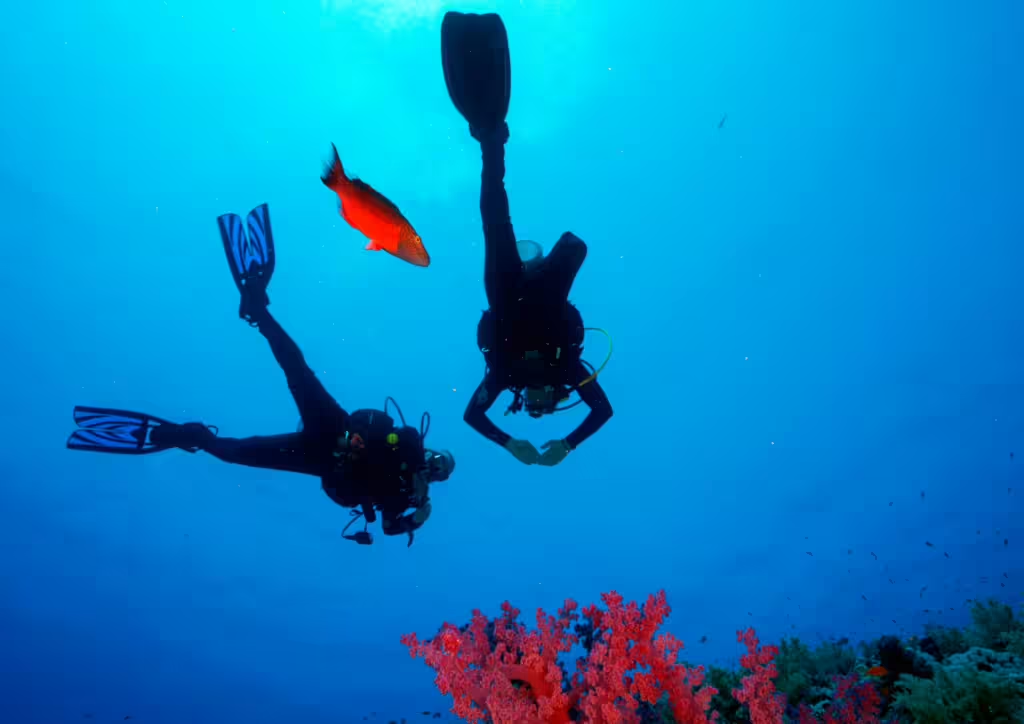
Diving lessons play a critical role in promoting marine awareness, especially in a culturally rich destination like Bali. By participating in Bali diving courses, learners not only acquire essential skills but also gain a deeper appreciation for the underwater world and the ecosystems that thrive within it. Each scuba diving certification obtained in the region not only marks a personal achievement but also fosters a sense of responsibility among divers to preserve the delicate marine environments they explore.
As guests engage with Bali Dive Resorts, they can be educated about local marine life, conservation efforts, and the challenges these ecosystems face. This knowledge is paramount, as it encourages divers to practice sustainable diving techniques and become advocates for ocean conservation when they return home. Moreover, diving lessons, from introductory diving courses to Advanced Diving Courses, empower individuals to connect with the ocean in a meaningful way.
This engagement is crucial for cultivating a community of responsible divers who prioritize environmental stewardship. In Bali, the emphasis on sustainable practices within diving lessons elevates the experience beyond mere recreation, instilling a commitment to protect marine habitats. Consequently, as visitors complete their diving lessons in Bali, they emerge not only as skilled divers but also as informed environmental stewards, ready to champion the cause for marine conservation in their future endeavors.
Open Water Diving Courses: Connecting Tradition and Adventure
Open Water Diving Courses in Bali offer a unique fusion of tradition and adventure, allowing participants to immerse themselves in the rich cultural heritage of the island while exploring its breathtaking underwater landscapes. These courses, often provided by reputable Bali Dive Resorts, are not just about learning the technicalities of scuba diving; they also weave in local customs and stories that reflect the Balinese way of life. As divers embark on their journey, they gain valuable skills that lead to scuba diving certification, all while being surrounded by the stunning marine biodiversity that helps foster a deep respect for the ocean and its ecosystems.
The experience of taking a diving course in Bali is enhanced by the commitment to sustainability that is deeply ingrained in Balinese culture. Learning about the importance of preserving the environment and marine life becomes an essential part of every diving lesson, encouraging divers to be environmentally responsible. Whether you’re an aspiring diver or an experienced adventurer looking for an Advanced Diving Courses, Bali’s open water diving programs promise unforgettable experiences that connect individuals to both the adventure beneath the waves and the cultural richness of the island above.
Advanced Diving Courses: Preserving Bali’s Underwater Ecosystem
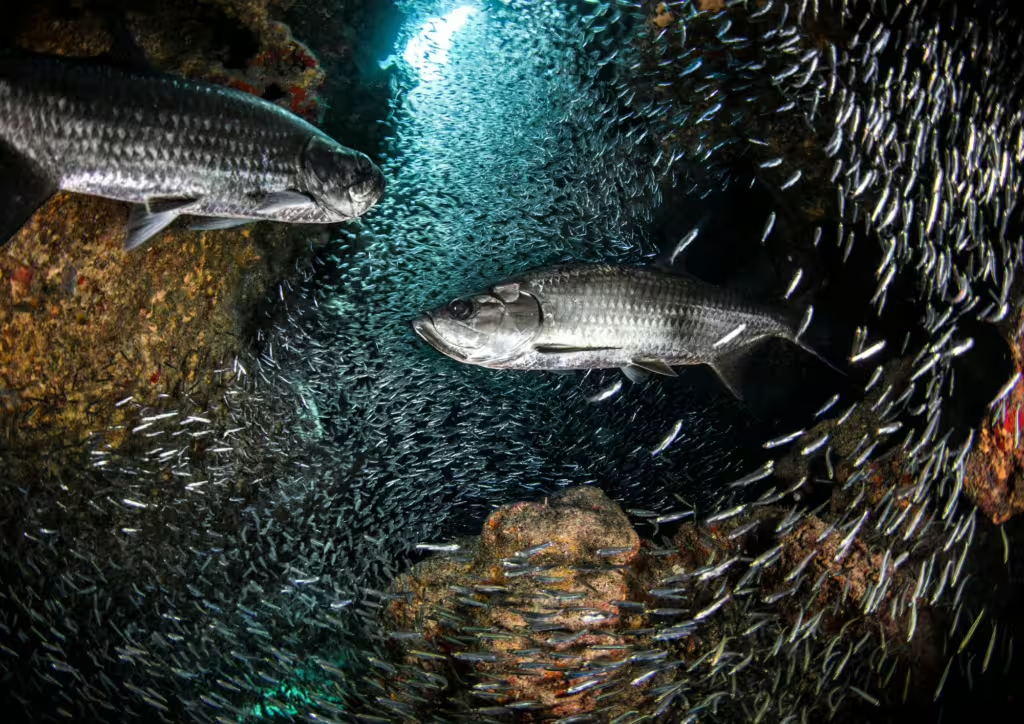
Bali, known for its stunning landscapes and vibrant culture, is also home to some of the world’s most breathtaking underwater ecosystems. The Advanced Diving Courses available at various Bali Dive Resorts not only educate divers on the technical aspects of scuba diving but also emphasize the importance of preserving these delicate marine habitats. Participants learn about the local biodiversity, sustainable diving practices, and how their actions can impact the underwater environment.
By offering courses that combine education with a deep respect for nature, Bali’s dive resorts are fostering an environmentally conscious diving community. In addition to enhancing diving skills, these advanced courses often include workshops on marine conservation and stewardship. scuba diving certification earned here does not just signify a level of expertise; it signifies a commitment to protecting Bali’s marine life. Divers gain valuable insights into responsible diving practices that help minimize damage to corals and marine ecosystems. Through these lessons, Bali is not just a destination for adventure; it’s a hub for cultivating an ethos of sustainability among divers who are eager to explore its ocean treasures while safeguarding them for future generations.
Embracing the Depths of Culture and Sustainability
As we explored the intertwined themes of Bali’s rich cultural heritage and sustainable tourism, it becomes evident that the unique traditions and practices of the island deeply influence its approach towards eco-friendly travel experiences. By participating in Bali diving courses and engaging with local dive resorts, travelers not only immerse themselves in the stunning underwater world but also support sustainable practices that promote the health of marine ecosystems. Each scuba diving certification and lesson serves as a reminder of our collective responsibility to protect the environment while enjoying the natural beauty that Bali offers.

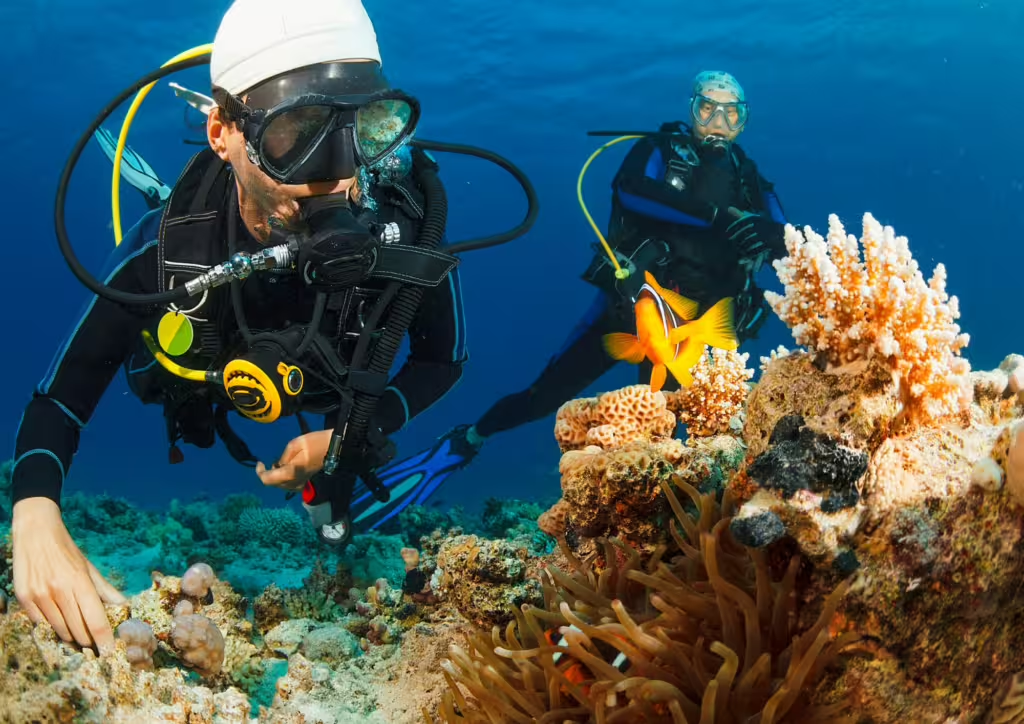
I’m impressed with how Bali is embracing sustainability in their tourism industry. The emphasis on preserving marine ecosystems and promoting eco-friendly practices is inspiring.
Thank you, Yasmin! We’re thrilled that you’re impressed with our commitment to sustainability in Bali’s tourism industry. It’s indeed inspiring to see the island’s efforts to preserve its marine ecosystems and promote eco-friendly practices. As a responsible dive resort, we’re proud to be part of this movement and look forward to continuing our initiatives in sustainable diving and conservation.
I agree that Bali’s cultural heritage plays a significant role in shaping their approach to sustainable tourism. The unique traditions and practices of the island make it an attractive destination for those who value environmental responsibility.
Thank you for sharing your thoughts, Eryndor! We’re glad to hear that you appreciate Bali’s unique cultural heritage and its impact on sustainable tourism. At our resort, we also strive to promote eco-friendly practices and conservation efforts to ensure the preservation of Bali’s marine ecosystems. Our diving courses not only teach scuba diving skills but also educate divers about the importance of responsible diving and marine conservation. We believe that by working together, we can make a positive impact on the environment and create a more sustainable tourism industry.
I’m excited to learn more about Bali’s scuba diving courses and how they incorporate sustainability into their programs. It’s great to see destinations taking proactive steps towards reducing their environmental impact.
Dear Rizal, thank you for sharing your enthusiasm about Bali’s scuba diving courses and sustainability efforts. It’s indeed a great step forward in promoting eco-friendly tourism practices. At our resort, we’re committed to providing not only exceptional diving experiences but also educating our guests on the importance of marine conservation. Our diving courses are designed to promote sustainable diving practices, from reef monitoring to beach clean-ups. We believe that by working together, we can make a positive impact on the environment and preserve Bali’s underwater treasures for future generations. If you have any more questions or would like to learn more about our sustainability initiatives, please feel free to reach out to us at [email protected] or call +62 857 3891 8262.